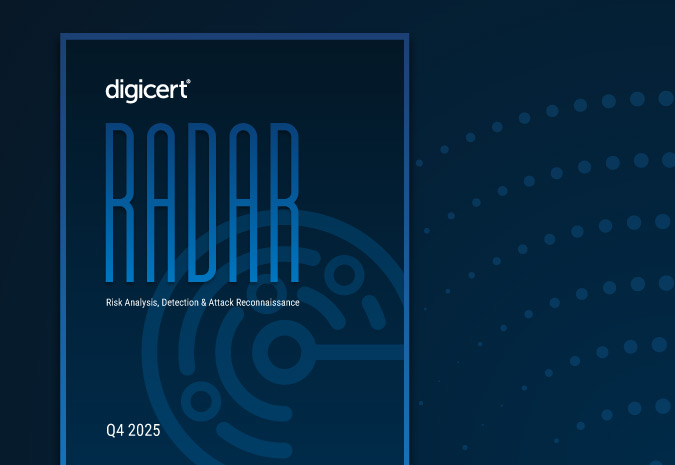Over the past year, more and more organizations have accelerated their digital transformation processes due to the push for remote work. Digital document signing, or the process of individuals or organizations adding an electronic signature to a document, has created business continuity by eliminating the need for a handwritten signature. These e-signatures allow parties to sign anywhere, at any time, saving time, giving businesses a competitive edge and improving customer experience.
In fact, many business processes have changed for good as a result of the pandemic, but without proper security, digital transformation is vulnerable to attacks and potential service failures. Digital signatures offer more convenience than wet signatures, and, if done correctly, they can be even more secure to ensure trust when signing contracts, agreements or any other type of document.
However, you cannot just open a document, add a signature and expect it to be secure. To make digital signing secure, you need a digital document signing service that meets local and international regulations and can encrypt your documents to keep them safe.
Why use a digital document signing service
Ensuring trust between parties is critical for individuals and organizations conducting business. With the reduction of face-to-face interactions, there is a greater need to build trust and validation into signed documents to successfully exchange your contracts securely, especially when going paperless.
Utilizing a document signing solution will help you build that trust and security, eliminating the need for in-person interactions and handwritten signatures. Additionally, only with a certified provider can you sign documents that are legally binding and recognized as equal to a handwritten signature.
A digital document signing service:
- Eliminates the need for a handwritten signature.
- Allows for signatures anywhere, at any time, on any device.
- Provides validated identity for organizations to mass sign and for individual to securely sign.
- Is legally binding depending on the country.
- Can be used to sign all document types.
- Is generally quicker than hand-signing documents in person or with a notary.
- Is highly secure.
- Reduces the environmental impact of printing and mailing.
- Decreases cost and human error.
- Improves an organization’s competitiveness.
- Increases customer satisfaction and experience.
Any industry that requires legally binding signatures can use digital document signing, including insurance, real estate, finance, healthcare, education and enterprises conducting business remotely.
How digital document signing is secure with PKI
When working remotely or with parties in different locations, it’s critical to ensure that your documents and contracts are transferred securely, and you can verify who you’re doing business with. One of the surest ways to secure digital document signing is through public key infrastructure (PKI) technology, which proves the identity and authenticity of the sender and prevents tampering with the document.
With PKI, a digital signature is an encrypted hash of your message that only someone with a copy of your public key can decrypt. This ensures that the document contents will not be altered and enables you to verify the sender. Unlike a scanned or typed signature, a digital signature secured with PKI is virtually impossible to forge.
To ensure a document is legally binding, a document signing solution must comply with stringent government standards. DigiCert is an accredited Qualified Trust Service Provider (QTSP), which means we are accredited to provide qualified digital certificates for the highest level of digital signature: the Qualified Electronic Signature. A Qualified Electronic Signature meets the requirements of the eIDAS regulation (No. 910/2014), which is recognized around the globe as the legal equivalent to a handwritten signature. In fact, the level of trust is so high, the qualified regime is a standards benchmark for electronic identity, e-signatures, and Certificate Authority supervision throughout the world. Additionally, certain industries have regulations such as HIPAA, that require audit trails to ensure signed documents are compliant.
Sign documents with DigiCert® Document Trust Manager
As the global leader in PKI, DigiCert has developed Document Trust Manager, an easy all-in-one solution for digital document signing. With Document Trust Manager, organizations get greater levels of trusted digital signature solutions that meet the highest EU legal standards along with dedicated local resources and expertise. Plus, no matter where you are in the world, DigiCert has a signing solution for your use case.
Document Trust Manager enables digital signatures that are compliant with stringent global standards, including EU eIDAS, Swiss ZertES, and the technical requirements of the Adobe Approved Trust List (AATL). Plus, as a cloud solution, there is no need to invest in hardware; you only pay for what you consume.
We also make it easy to manage, automate and monitor digital signatures with Document Trust Manager is a cloud-based solution that helps to digitally transform organizations by enabling secure, legally binding digital document signing anywhere, any time and on any device. Organizations using Document Trust Manager can create and automate digital signing for natural and legal persons that are encrypted to prevent tampering and authenticated to verify identity.
Digital document signing eliminates the need for handwritten signatures, decreases costs, saves time and leaves a smaller environmental footprint. DigiCert Document Trust Manager makes it easy to manage any volume of documents, in a variety of file formats, without additional hardware or software investment.
Find out more at digicert.com/document-trust-manager or email docsigning@digicert.com to get started today.






